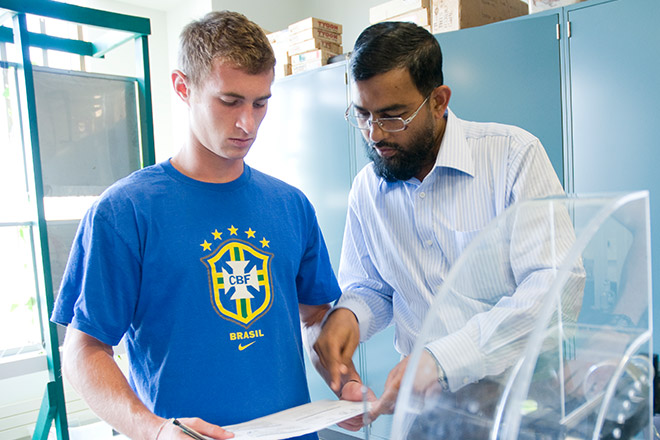CET faculty graduate with doctoral degrees in ‘the science of learning’
CET faculty graduate with doctoral degrees in ‘the science of learning’

Since 2013, 10 faculty from RIT’s College of Engineering Technology and NTID have been part of a doctoral program selected for its focus on improving STEM education. In 2017, Mike Eastman, Jeanne Christman, and George Zion defended their doctoral dissertations as part of the Curriculum, Instruction and the Science of Learning program, based at the University of Buffalo. Their coursework became as transformational an experience for them as it is for their students.Its influencing on how they teach engineering technology and build collaborative learning environments for their students.
“In 100 years, we haven’t appreciably changed the way we teach or the way we do engineering education. We need to reflect on what we do as teachers and educators,” said Eastman. His dissertation is “The journey from educator to engineering education researcher.” Christman detailed “Where are all the women engineers? An insider’s view of socialization and power in engineering education” for her dissertation. Zion presented “PLTW’s Long-Term Effects on Engineering Academic Success.” Their work calls for a shift away from the current strategies for preparing university faculty to a model that includes underpinnings in educational theory. The doctoral program challenged the cohort group to think beyond traditional perspectives to consider how STEM education could be more welcoming to a diverse body of learners.
Both Eastman and Christman found the program, with its emphasis on educating skilled engineers in applied research and the “science of learning,” a challenge but transformational. As long-time faculty with experience as engineers in industry, they are newly acquired expertise in STEM education. This makes them well prepared to impact changes in engineering education and to widen the scope of engineering education research. It also opens the door for a larger pool of research-faculty to help develop CET’s first doctoral degree program at RIT.
Even broader than that, their work may also influence a new generation of STEM professionals.


